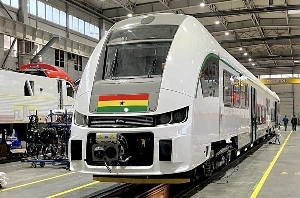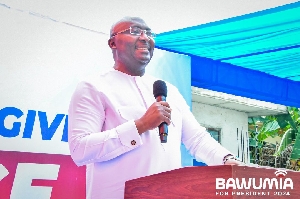Opinions of Friday, 3 September 2010
Columnist: GNA
"Our road transport 'wahala'"
(A GNA feature by Michael Avamah)
Accra, Sept. 2, GNA - 93I promise on my honour to be faithful and loyal to Ghana my motherland, I pledge my self to the service of Ghana with all my strength and with all my heart 85" These words from our National Pledge is a guiding motivation in fostering devotion to our motherland.
Road transport is a predominant means of commuting in Ghana accounting for high passenger travels and carting of goods in the country, making it a vital transportation service that links the country to others in the entire West African sub-region.
Governments have demonstrated commitment in setting aside a greater percentage of the budget for road construction and maintenance, with Private contractors assuming the implementation of the task.
Transportation has developed rapidly in Ghanaian society where the populace in both the public and private sectors struggle to earn their livelihood and at the same time contribute towards national development. In deed, it is heart-breaking to see citizens rise everyday to struggle for vehicles before reaching their various destinations.
The scrambling for transport despite several interventions by government and other stakeholders, leaves much to be desired in resolving the challenges of the sector.
On a typical day, you will observe men and women, the aged, nursing mothers and children, employing 91smart tactics' and showing 91no mercy' in the scramble to board a vehicle sometimes even at the peril of their lives to reach their destinations.
"Bra or sister, please I am at your back" or 93I want to buy something and come," is a common statement of plea from a desperate passenger in he queue notifying someone in front of him/her in order to dart off quickly to join another queue that leads to a nearby destination.
With rapt attention a passenger waits patiently to see which of the queues he had joined would be quickest to board and then would spring out of nowhere fighting his way into a loading vehicle.
This scenario continues almost every working day with Mondays and Fridays being the worst of them all at the various road transport terminals in Accra within the rush periods of 7:00 am and 5:00 pm daily.
The sight of passengers waiting in queues for long periods and then the bouts of scuffle beyond civility to board a vehicle to their destinations is adding to the numerous challenges confronting the nation.
The recent influx of private automobiles popularly referred to as =91Floating Cars" manned by unlicensed and inexperienced drivers, plying the routes of the city in search of opportunities to pick up passengers, often in utter disregard for traffic regulations.
There is also the blatant disregard for the rights of passengers on board these vehicles as they are often left stranded at obscure and robbery prone locations because of their refusal to pay inflated fares before they can be conveyed to their destinations.
The bus conductors popularly referred to as 91diver mates' do not hesitate to use foul language on passengers over minor disagreements over the correct fare and sometimes physical outlook of notes used for the payments.
The most pathetic of them all is the nature of these vehicles which are comparable to scrap metal that could further endanger the lives of passengers in the case of an accident.
The introduction of the Metro Mass Transit buses has been helpful as a means of easing the transportation problem. Involving both the public and private sectors would strengthen the transport system in rendering quality service to passengers in the country.
There would also be the need to create zonal transit points or areas of jurisdiction within which vehicles would be allowed to travel to convey passengers to their destinations. Adopting such a plan would further facilitate the easy movement of vehicles and reduce traffic congestion on the roads.
The Motor Transport and Traffic Unit (MTTU) of the Police Service in combined efforts with the National Road Safety Commission (NRSC) can adopt prudent measures to ensure the effective enforcement of regulations and campaigns for transport owners and drivers.
Passengers who patronise public means of transport must be emboldened to report drivers who abuse traffic regulations and vehicle owners who insist on putting death-traps as vehicles on the roads to place the lives of people in jeopardy.
Perhaps, the introduction of a computerised traffic control system and other methods of traffic engineering as part of the government's Urban Transport Project would improve mobility and reduce peak-hour traffic hold-ups on the roads.
As passengers queuing and struggling at the various bus terminals in the city on a daily basis, it is the aspiration of the ordinary Ghanaian that Government and all other stakeholders in the transport industry should apply themselves seriously to the task of providing a consistent and reliable public transport system in Ghana. It is one of the key prerequisites for achieving socio-economic development












